Our Story
The Global Alliance Against Traffic in Women (GAATW) Canada was established in 1996 in Victoria, British Columbia.
Since 1996, GAATW Canada has addressed trafficking issues and networked with women’s, 2SLGBTQAI+, sex work, and labour organizations locally and globally.
In 1997, GAATW Canada hosted the North American Regional Consultative Forum on Trafficking in Women, the first consultation of its kind held in Canada.
The forum brought together activists from service-based and advocacy organizations in Canada, the United States, Nepal, the Philippines, Thailand, the Netherlands, France, Puerto Rico, and the Czech Republic, as well as a number of scholars and policymakers.
Forum Report: Whores, Maids & Wives: Making Links
Over the years, GAATW Canada engaged in policy advocacy and conducted several research projects to inform Canada’s response to human trafficking.
In 2022, GAATW Canada incorporated as a federal non-profit organization.
Closed
Our Mission
Our Vision
Our Values
Position Statement
‘Trafficking’ and the labour exploitation of individuals must be understood in the context of neoliberal capitalism, patriarchal social attitudes, gender inequity in labour markets, increasingly restrictive immigration policies, weakening of labour rights, systemic racism, and impacts of climate change-related conditions that drive migration.
We acknowledge the limitations and harms of Canada’s law and order trafficking framework and aim to shift protectionist and criminalization approaches to approaches that are respectful of individual’s agency and labour rights.
GAATW Canada commits to action and advocacy to make concrete political and social change in the anti-trafficking landscape across Canada.
We embed an intersectional non-discrimination lens in all our work, that is non-discrimination on any grounds, including – singly or in combination – race, ethnicity, descent, sexual orientation, gender identity, religion, age, migrant status, birth or other status, or occupation (including work in the informal sectors such as domestic work, sex work, among others).
We employ the highest degree of accountability in our work to encourage a more transparent and effective use of anti-trafficking funding, resources, and statistics among all anti-trafficking stakeholders in Canada.
This statement does not address specific issues of child or youth exploitation or trafficking. It is not our intention to exclude these serious issues; rather, GAATW Canada acknowledges that child and youth exploitation and adult exploitation are different issues and we specifically focus on adult labour exploitation and trafficking.
Staff
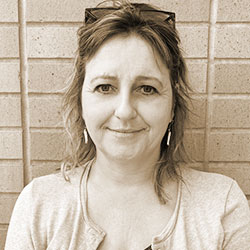
Alison Clancey
National Director
Alison Clancey has worked in anti-trafficking curriculum development, training, frontline service, public education, policy, and advocacy for over a decade. Alison’s interest in addressing human trafficking through a labour rights framework stems from her previous career and experience working critically with law enforcement and the anti-trafficked.
I joined GAATW Canada because if we are as a nation to address human trafficking effectively, a significant shift in the understanding and response to human trafficking is required.
It is my hope that my community development experience facilitating complex multistakeholder processes that tackle challenging social issues will advance GAATW’s mission.
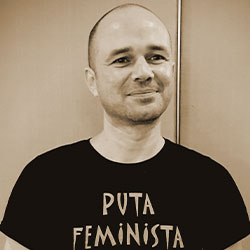
Borislav Gerasimov
Consultant
He has also volunteered for LGBTQI+ and sex worker rights NGOs in Bulgaria and the Netherlands. Borislav holds a degree in English Philology from Sofia University, Bulgaria.
I joined GAATW Canada because I see an urgent need for a change in the discourses, policies, and practices related to addressing human trafficking in Canada. I hope that my experience with communications and advocacy in Europe, Asia, and globally will help me contribute to achieving this change.
Board of Directors
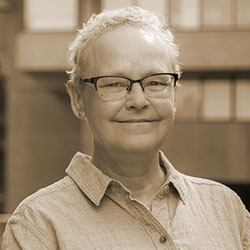
Dr. Annalee Lepp
Co-Chair, Treasurer
Since 1997, she has been involved in various collaborative research projects that examine Canadian state policies and practices as they relate to trafficking in persons and irregular cross-border movements as well as the impact of anti-trafficking policies on sex workers’ rights in Canada.
I joined GAATW Canada’s Board to continue my decades-long work with the organization.
I hope that I can continue to shape the direction of GAATW Canada’s work that is in line with the principles that drive the work of GAATW’s International Secretariat and the global alliance.

Leigh Elliott
Co-Chair, Secretary
Leigh has also conducted community-based research on sex work, housing, gender-based violence and violence prevention.
I joined GAATW Canada’s Board because I believe there needs to be a national voice that speaks from an evidence-based framework on the topic of human trafficking.
I hope the impact of GAATW Canada will be to help propel a movement to change the conversation around human trafficking, to end the conflation between sex work and human trafficking, and to advocate for labour rights in all sectors.

Jenny Wright
Member at large
Jenny has held numerous executive level and academic positions. Currently, she is living between St. John’s, Newfoundland and Halifax, Nova Scotia and working primarily through her private practice, the Landing Services, a counselling and training agency she co-founded in 2021.
I joined GAATW because we need a national voice in Canada to counter the harms of the human trafficking narrative, with evidence-based research, advocacy and dialogue. I believe this will be the impetus for new policy and practices rooted in labour rights for women in sex work, migrant labour, and other industries.
It is my hope that my passion for innovative governance and decades of work fighting gender-based violence will advance GAATW Canada’s mission.
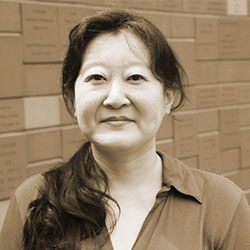
Dr. Julie Ham
Member at large
Her research is grounded in academic-community collaborations that speak to priorities identified by migrant and minority communities, such as the dehumanization of domestic workers, harms produced by the anti-trafficking industry, the impact of social difference in sex work, the trajectory of migrant remittances, cultural production and dynamics that support or hinder social change for migrant communities.
I joined GAATW Canada’s Board to support the rights and well-being of sex workers, migrant workers, migrants and other communities that have been borne the brunt of repressive anti-trafficking measures.
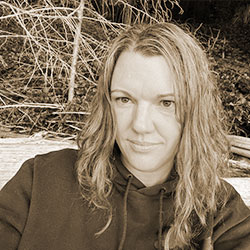
Dr. Julie Kaye
Member at large
Dr. Kaye’s work also examines settler-colonialism and colonial gendered violence and racialized policing as well as harm reduction, consent, and body sovereignty.
I joined GAATW Canada’s Board because I was honoured early in my education to benefit from learning from the critical anti-trafficking work of GAATW. This foundational education has been essential to my relations with community and I look forward to supporting future generations of community leaders through GAATW Canada.
